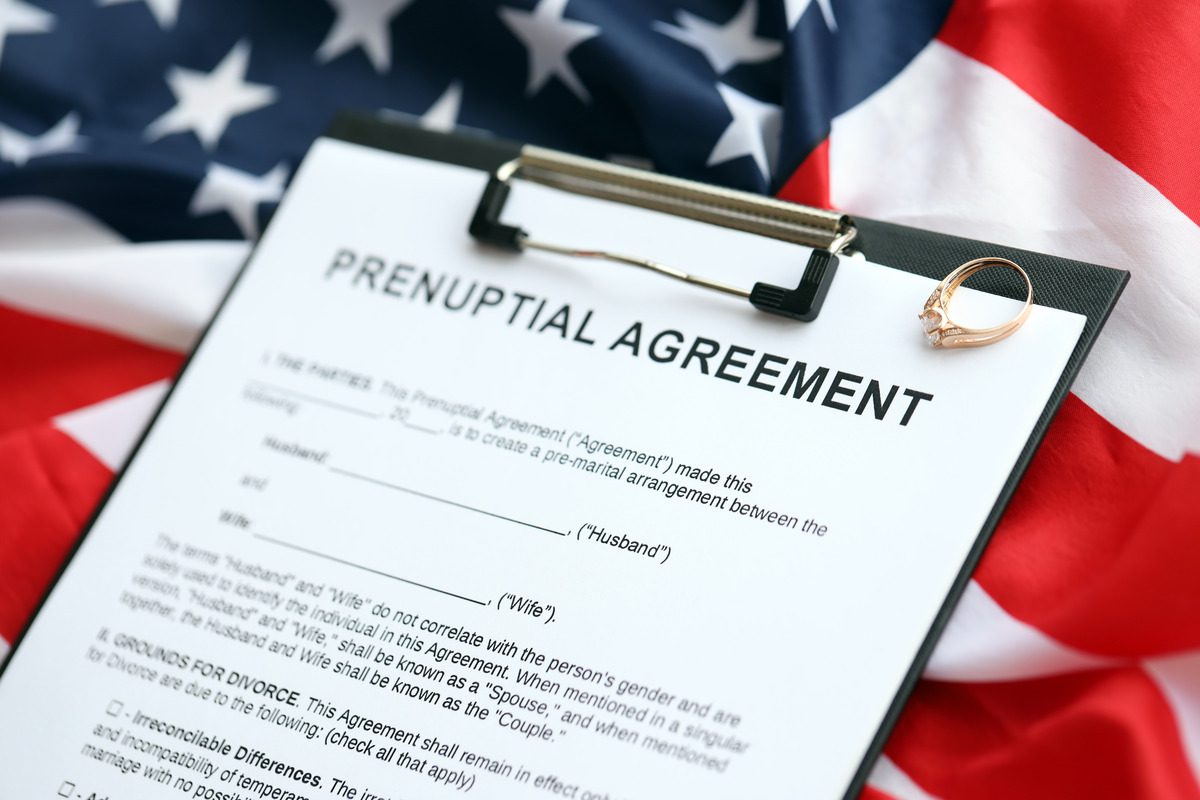How to Secure a Prenuptial Agreement: Essential Tips and Advice
Table of Contents
- Introduction: Why a Prenuptial Agreement is Important
- Why Do We Need a Prenuptial Agreement?
- What is a Prenuptial Agreement?
- How Do You Get a Prenuptial Agreement?
- Who Should Consider a Prenuptial Agreement?
- Common Concerns about Prenuptial Agreements
- Step-by-Step Guide to Securing a Prenuptial Agreement
- Frequently Asked Questions (FAQs)
- Conclusion: Protect Your Future with a Prenuptial Agreement
Introduction: Why a Prenuptial Agreement is Important
Marriage is a life-altering decision involving not just emotional commitment but also legal and financial considerations. A prenuptial agreement (or “prenup”) is an essential legal document that some couples create before marriage. It outlines the division of assets, liabilities, and other financial matters in the event of a divorce or separation. It clarifies what will happen in the event of one spouse’s death. While this may sound reserved for the wealthy or those with complex financial situations, prenuptial agreements can benefit almost any couple.
The popularity of prenuptial agreements has increased over the years as more people recognize their importance in providing financial protection. There’s also a growing awareness that these agreements aren’t just about safeguarding assets—they’re about setting the stage for a more transparent and informed financial partnership. This article will dive deep into prenuptial agreements, explaining why they matter, how to secure one, and the most frequently asked questions many couples have.
Why Do We Need a Prenuptial Agreement?
Prenuptial agreements, often called “prenups,” are not just legal documents for the wealthy or those with complex financial situations. These agreements can benefit many couples, regardless of their economic status, as they help clarify expectations and provide security for both partners. A prenuptial agreement is a legal contract entered into before marriage that determines how assets, liabilities, and other financial matters will be divided in the event of a divorce, separation, or the death of one spouse.
1. Clarity and Transparency: Setting Expectations Early
One primary reason for needing a prenuptial agreement is that it sets clear financial expectations between both partners. Marriage is not only an emotional union but also a financial one. Both individuals often come into the relationship with their assets, debts, goals, and financial plans for the future. A prenup provides the opportunity to openly discuss finances before the wedding day, which can prevent misunderstandings or hidden resentment down the road.
How a Prenup Sets Expectations:
- Asset Division: Couples can agree on how to divide their assets, whether real estate, savings, or investments, in case of divorce.
- Debt Responsibilities: A prenup clarifies which partner is responsible for any pre-existing or future debt.
- Alimony: If applicable, a prenup outlines whether one spouse will receive alimony or spousal support.

2. Protecting Assets and Inheritance
Many people enter marriage with substantial assets—whether in property, business interests, or savings—and want to ensure these assets remain protected in case of a divorce. A prenuptial agreement allows individuals to safeguard what they’ve worked hard to acquire before marriage.
Protecting Family Businesses and Heirlooms:
3. Managing Debt Responsibility
When entering marriage, one or both spouses may have debts, such as student loans, credit card debt, or personal loans. Without a prenuptial agreement, these debts could become a shared responsibility in the event of divorce. A prenup can explicitly outline which partner will be responsible for paying off specific debts, ensuring that one spouse doesn’t end up with the other’s financial burdens.
This can be especially important in cases where one spouse has significant pre-existing debt. If one partner enters the marriage with debt, a prenuptial agreement ensures the other partner will not be liable. For example, if one spouse has student loans or personal debt, a prenup can specify that the spouse who incurred the debt will be responsible for paying it, even if the marriage ends.
4. Avoiding Lengthy and Costly Divorce Proceedings
Divorce proceedings can become lengthy, stressful, and expensive without a prenuptial agreement. Without explicit agreements, the division of assets and liabilities is left to the court to decide, leading to unpredictable outcomes. Divorce litigation can take years and cost thousands of dollars in legal fees.
How a Prenup Can Save Time and Money:
- Divides Property Quickly: The prenup defines how property should be divided, avoiding lengthy court hearings.
- Clarifies Spousal Support: The agreement may specify whether alimony is owed and, if so, how much and for how long.
- Reduces Conflict: An explicit financial agreement can reduce tension and conflict during divorce proceedings.
5. Protecting Children and Family Interests

A prenuptial agreement can protect the children’s inheritance rights if either partner has children from a previous relationship. Prenups can also specify how assets and property should be divided in case of divorce, ensuring that the children of earlier marriages receive their fair share of the family’s wealth.
This is particularly important for individuals with children who want to ensure their inheritance rights are protected, especially when one spouse has significant family wealth or business interests. A prenuptial agreement can ensure that assets are passed down according to the family’s wishes rather than being subject to the laws of inheritance, which may not align with the parents’ desires.
6. Protecting Business Ventures and Investments
For individuals who own a business or have investment properties, a prenuptial agreement can be a key tool in protecting these ventures. If one spouse is an entrepreneur or has business interests, the business could become a contested asset during a divorce. A prenup ensures that any company or investments remain the separate property of the spouse who owns them.
This is particularly important for individuals who started a business before marriage or who have a family business that they wish to keep within the family. A prenup can help ensure that the company will remain unaffected by the divorce, protecting the spouse’s financial future and their business.
7. Preventing Emotional Stress and Uncertainty
Divorce can be one of the most emotionally and mentally taxing experiences in life. A prenuptial agreement can alleviate some of the stress and anxiety by providing a clear, pre-established plan for asset division. In times of emotional turmoil, such as during a divorce or separation, having a document that outlines the details can reduce uncertainty and ease decision-making.
Prenups provide security, as both partners know they have a plan if the relationship ends. They also prevent one spouse from feeling blindsided or taken advantage of, as both parties have agreed to the terms in advance.
8. Promoting Financial Responsibility and Communication
Clear communication about finances is crucial in any relationship. A prenuptial agreement forces both partners to have open discussions about their assets, debts, and financial goals. This transparency encourages a more responsible approach to managing finances throughout the marriage.
What is a Prenuptial Agreement?
A prenuptial agreement is a legally binding contract between two individuals before marriage. The purpose of a prenup is to outline how financial matters will be handled in the event of a divorce, separation, or even the death of one spouse. It allows couples to take control of their financial futures and avoid leaving these decisions to the courts, which may not be aligned with the partners’ wishes.

- Division of Property and Assets: This is one of the most critical sections of a prenup. It specifies how property, money, investments, and other assets will be divided in the event of divorce. For example, if one spouse owned property before the marriage, they may want to ensure it is considered separate property and not subject to division.
- Debt Responsibility: In the event of a divorce, debt division is as important as asset division. A prenuptial agreement can clarify who will be responsible for paying off debts, including credit card balances, loans, and mortgages.
- Alimony/Spousal Support: A prenuptial agreement can address the issue of alimony or spousal support. In some cases, a spouse may agree to waive alimony; in others, the agreement might set terms regarding the duration and amount of support.
- Inheritance Rights: If either spouse has children from a previous relationship, a prenup can clarify how inheritance will be handled in the event of one spouse’s death. This ensures that the surviving spouse and children are adequately cared for according to their wishes.
- Business Interests: If one spouse owns a business or has investments they want to keep separate, the prenup can help ensure that these assets are not considered marital property and are not subject to division in the event of a divorce.
How Do You Get a Prenuptial Agreement?
Step 1: Consult an Experienced Family Law Attorney

While both parties are not required to hire separate attorneys, it is highly recommended that they do so. Each partner should have independent legal representation to protect both parties’ interests and avoid potential conflicts.
Step 2: Disclose All Financial Information
Both partners must fully and honestly disclose their financial information, including income, debts, assets, and liabilities. This transparency is essential for the agreement’s validity. Full disclosure ensures that both parties make informed decisions and that no assets or debts are hidden.
Step 3: Discuss and Negotiate the Terms
Once you’ve hired your attorney and disclosed your financial details, the next step is to discuss the prenuptial agreement terms. You and your partner must agree on how your assets, liabilities, debts, and responsibilities will be handled if the marriage ends. You will also need to decide whether spousal support (alimony) will be paid in the event of a divorce and how inheritance rights will be divided.
Step 4: Draft the Prenuptial Agreement
Step 5: Review the Agreement
Once the prenuptial agreement is drafted, both partners should review it carefully with their respective attorneys. This is a crucial step to ensure that both parties fully understand the agreement’s terms and agree to all provisions.
Step 6: Sign the Agreement

Once both parties are satisfied with the terms of the prenuptial agreement, it can be signed. A notary public must sign the contract to be legally binding, and each party should receive a copy of the signed document. It is essential to ensure that the prenup is signed voluntarily and well before the wedding day to avoid any appearance of coercion.
Who Should Consider a Prenuptial Agreement?
Individuals with Significant Assets
Business Owners
Individuals with Debt
People Entering a Second or Third Marriage
Couples with Unequal Financial Situations
Common Concerns about Prenuptial Agreements
Prenups Are Only for the Rich
Prenups Are Unromantic
Prenups Aren’t Enforceable
Prenups Can Be Used to Control Everything
Step-by-Step Guide to Securing a Prenuptial Agreement

- Start the Conversation Early: It’s essential to discuss the idea of a prenuptial agreement well before the wedding date. This gives both partners enough time to think it over and make informed decisions.
- Seek Legal Counsel: Hire an experienced attorney specializing in family law and prenuptial agreements. This ensures that the document is legally sound and fair to both parties.
- Disclose Financial Information: Both parties should fully disclose their financial situation. This includes income, assets, liabilities, and debts.
- Negotiate Terms: Discuss and agree on the terms of the prenuptial agreement. This may involve asset division, alimony, debt responsibility, and inheritance rights.
- Draft the Agreement: Once the terms are agreed upon, your attorney will draft the prenuptial agreement in compliance with state laws.
- Review and Sign the Agreement: Both parties should carefully review the agreement before signing it. It’s essential to ensure that both partners are comfortable with the terms.
- Store the Agreement Safely: After signing, store the prenuptial agreement in a secure location, such as a safe deposit box, and keep copies for both parties.
Frequently Asked Questions (FAQs)
1. What is the cost of getting a prenuptial agreement?
2. Can a prenuptial agreement be changed after marriage?
3. What should be included in a prenuptial agreement?
4. How long before marriage should you get a prenuptial agreement?
5. Can a prenuptial agreement protect assets in case of divorce?
Conclusion: Protect Your Future with a Prenuptial Agreement

Tess House Law Firm specializes in family law and prenuptial agreements. Our experienced attorneys are here to guide you through every step of the process, ensuring that your prenuptial agreement is fair, legally binding, and tailored to your unique needs. Contact Tess House Law today to schedule a consultation and protect your future with a prenuptial agreement that meets your needs.

